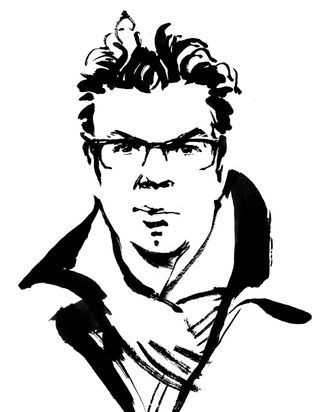
The poet Ben LernerÔÇÖs first novel, Leaving the Atocha Station, about a neurotically selfish American poet in Spain, was one of 2011ÔÇÖs smartest sideways social critiques ÔÇö and perhaps its unlikeliest critical hit (James Wood called it ÔÇ£subtle, sinuous, and very funnyÔÇØ). The more mature (and still neurotic) protagonist of his new novel, 10:04 (out September 2), is a Brooklyn author considering fatherhood and his own mortality. Lerner describes this episodic meditation on the New York life ÔÇö within the book itself ÔÇö as ÔÇ£neither fiction nor nonfiction, but a flickering between them.ÔÇØ
Why did you make 10:04 so self-consciously semi-fictional, and how semi-fictional is it?
From the beginning, this was a book about how fictions become facts and vice-versa. I do consider this a work of fiction ÔÇö plenty of events and characters are made up ÔÇö but it does occupy that flickering edge.
How about a few specific facts: Did your first novel sell 10,000 copies, did you really get a ÔÇ£strong six figuresÔÇØ for this one, and were you really inspired to write poetry by Peggy Noonan?
It sold more than 10,000 copies. I did get a big advance, though much less than what the narrator gets. The Reagan Challenger speech (that Noonan wrote) was an early experience of poetic rhythm ÔÇö but I donÔÇÖt think it was as big a deal for me as it was for the narrator.
YouÔÇÖve reviewed Karl Ove KnausgaardÔÇÖs My Struggle, which is also not-quite-fiction ÔÇö like other recent novels by Teju Cole, Tao Lin, and Sheila Heti. All of these writers are doing work similar to yours, floating in between memoir and fiction. Why is such work popular right now?
I think those are all very different writers, but they probably share a sense that, since your life invariably becomes material for your art, itÔÇÖs more interesting to incorporate that relation explicitly into your work than it is to conceal it.
The author in the book is motivated to defy the lit worldÔÇÖs expectations of his second novel. Do you feel thatÔÇÖs what youÔÇÖve done in 10:04?
I think heÔÇÖs more baffled by the lit worldÔÇÖs expectations. I personally have no sense of what expectations the readers of Leaving the Atocha Station have or had. But I made the reception of the first book a theme in the second ÔÇö kind of like the way Don Quixote encounters the first volume of Don Quixote in the second volume.
*This article appears in the August 25, 2014 issue of New York Magazine.

